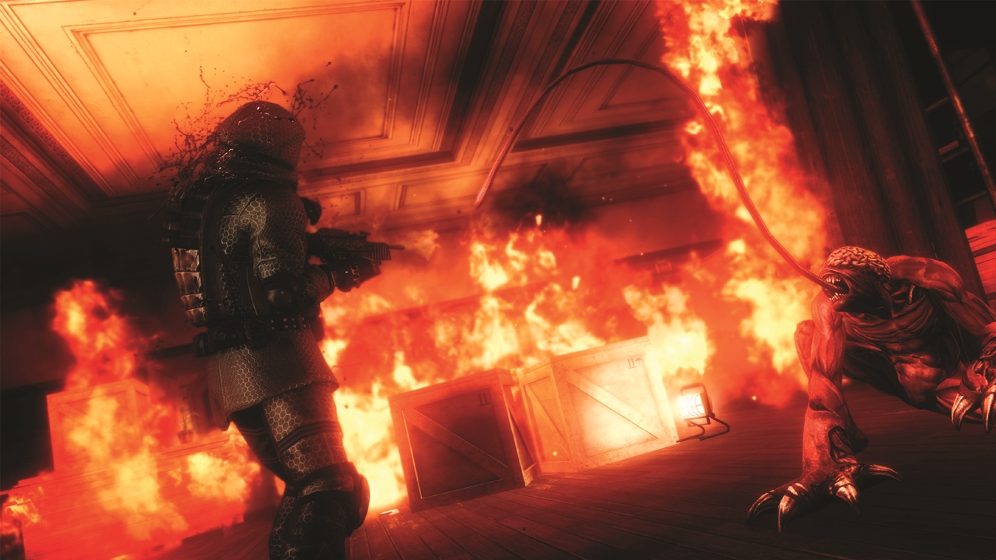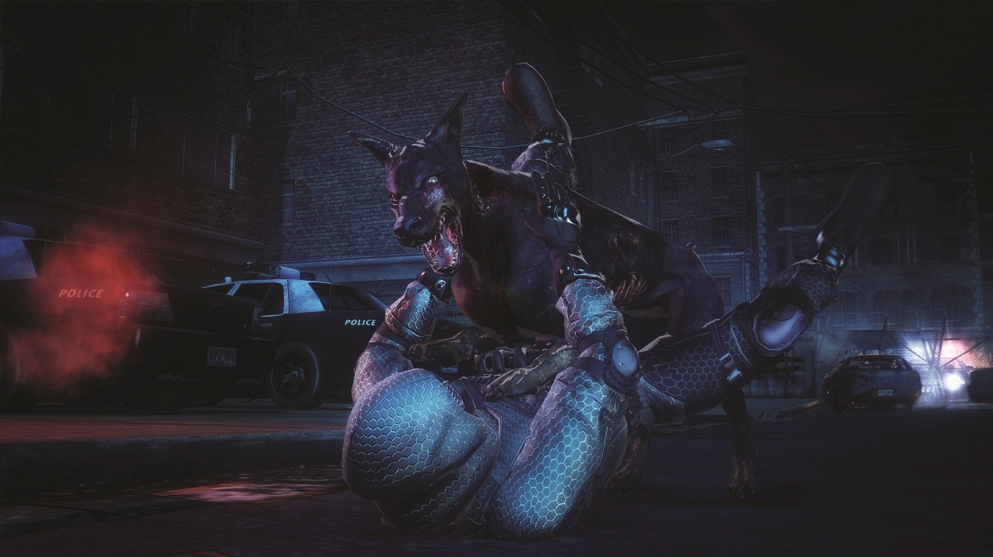Monster Mania: Operation Raccoon City is A Misguided Monster Mash

Monster Mania is a weekly column celebrating the unique and varied monster designs in horror gaming.
I don’t subscribe to the idea that spinoffs can damage a series’ legacy. And while it certainly helps when the legacy in question is one as storied as Resident Evil’s, I view spinoffs in the same vein as remakes of beloved films. Like remakes, spinoffs allow creatives to explore an established I.P. through a lens or design background that may significantly differ from those behind a series’ foundation. Does that always work?
An emphatic, “Hell no.”
Just look at the recent cluster fuck that has been Silent Hill: Ascension. But even in the case of Konami’s continual wrongdoing by Silent Hill, I still view each misstep as an opportunity to expand upon the series in a potentially unique or evolutionary way. This brings me to Resident Evil: Operation Raccoon City. This third-person, class-based shooter attempted to evolve the series by celebrating the series’ lineage of iconic monster designs.

To Operation Raccoon City’s credit, the game subverts the series standard of heroic protagonists by putting the player into the boots of an Umbrella Corporation baddie. After selecting one of six classes, the player embarks on missions with A.I. or player-controlled squadmates. From the opening moments, the game gives no illusion that this will be a familiar Resident Evil experience. The first mission pits the player against waves of mercenary soldiers, which unfolds in typical 3rd person cover-based shooter fashion, something we thankfully left behind in the 2010s.
Operation Raccoon City isn’t the finest example of this cover-based shooter trend. The weapon handling is loose, and movements sometimes feel delayed, which isn’t a recipe for success. But as soon as the game swaps out the dull mercenaries in favor of iconic series bosses and zombies, Operation Raccoon City turns into a goofy monster mash with moments of chaotic hijinks.
By the end of the first level, the player faces one of the series’ most iconic bosses, William Burkin. The player must flee Birkin while momentarily turning to take potshots at his shoulder-mounted eye to slow the brute while avoiding environmental dangers. Given the singular nature of options to survive the encounter, it’s an action-oriented setpiece devoid of strategy and tension. It is simple but not without its entertaining moments.

The game’s more action-oriented approach facilitates itself through Operation Raccoon City’s numerous stages, filled with more lackluster mercenaries and some of my favorite monsters from the series. In one section, the player is ambushed by a gang of zombified pups that will pin the player to the ground and attempt to nibble on their neck. In another, the player is trying to flee Raccoon City’s Town Hall, which has been set ablaze, and hordes of Lickers crawl the walls and attempt to whip the player with their elongated tongues. It’s a nonsensical encounter with a wildly bombastic set piece, yet there was something comically entertaining about mowing down hordes of Lickers with a machine gun. Likewise, facing off against Lickers, Hunters, Cerberus, and other iconic bosses such as Nemesis and Tyrant allows the game to pay homage to these tentpole titans of the series, albeit in a larger-than-life way.
While these depictions could be considered truncated, Operation Raccoon City elevates the most standard of enemies: their zombies. While chewing through zombie hordes that ambush the player makes for frantic firefights, there’s a bit more danger to zombies now. If a player is bit, there is a chance that they will become infected, and if not treated with a dose of anti-viral, they’ll turn into a member of the undead. Once zombified, the player will lash out and attack their fellow squadmates, recreating the silver screen horror of a group member turning into that which they are attempting to kill.

I can’t claim that Resident Evil: Operation Raccoon City has become a favorite series entry of mine. Even if I were to play this with friends, the monotony of gameplay and the lackluster rewards system aren’t compelling reasons to endure more than a few hours of play. That being said, this game is not the “betrayal to the Resident Evil brand” that some were bemoaning it to be in reviews. While flawed in significant ways, the game does have its moments of zombie carnage power fantasy that attempted to evolve on the Resident Evil experience. Without these risks and gambles, stagnation can and will saddle even the most beloved franchises.
For more horror game reviews, opinions, and features, check out DreadXP.
Categorized: Editorials
